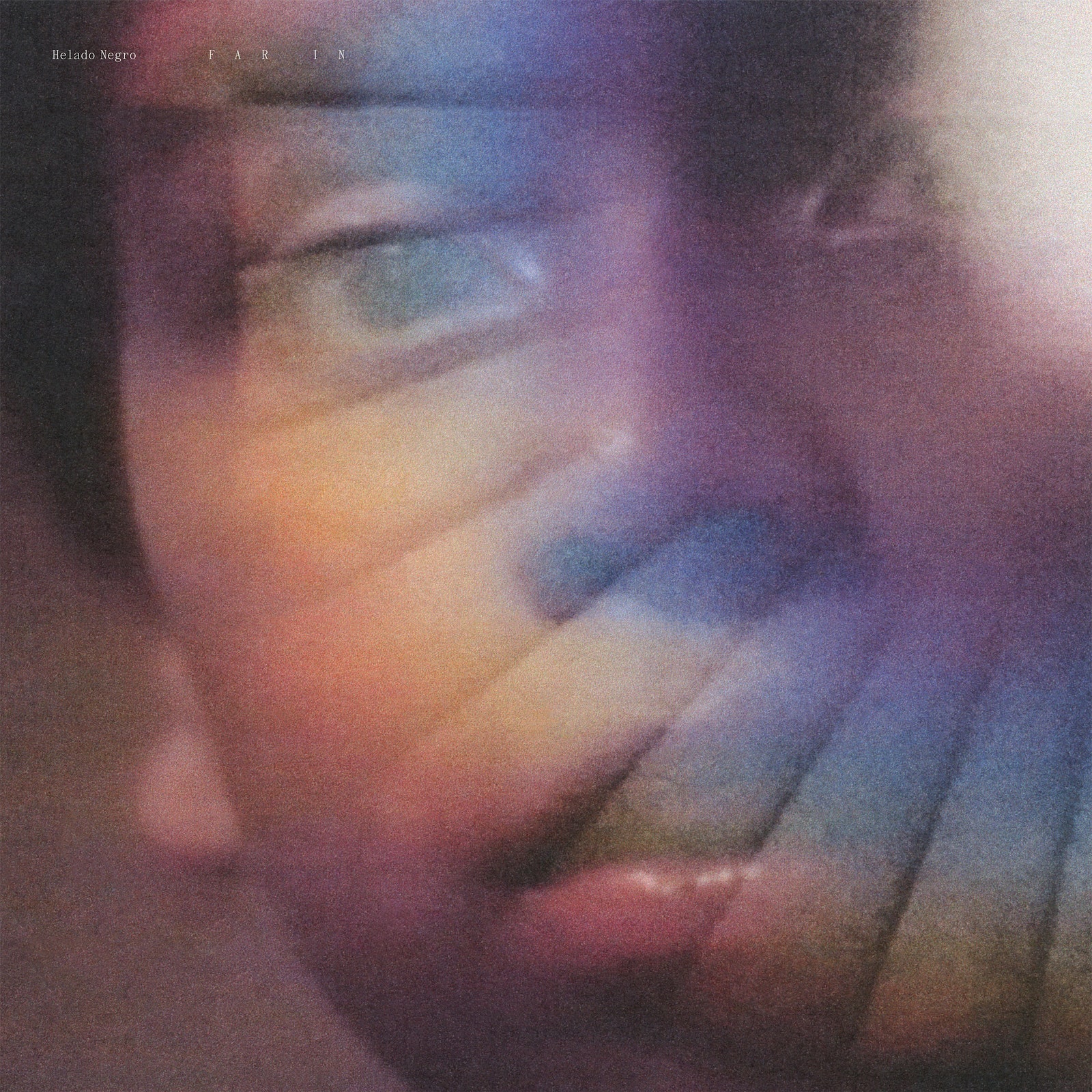Whenever Roberto Carlos Lange puts pen to paper, his whole world stops, then rotates in an infinite loop. Time stands still as he romanticizes his inner fantasies. For over a decade now, Lange’s work as Helado Negro has incorporated more of these fantasies, constantly metamorphosizing to incorporate the frozen world he’s plucking from.
For many, his welcoming acoustic-based 2019 classicThis Is How You Smile was the introduction to his world. Helado Negro’s cosmic inflections have always pushed his listeners into foreign territory – ones that are not so much murky or bizarre, but do rely heavily on suspension of hardened beliefs. His music transcends what other more widely-received folk artists like Devendra Banhart or Jose Gonazález are willing to explore.
His latest, Far In, pivots slightly away from the stripped-down feel of This is How You Smile, swinging the pendulum back to his electronic muse for an upbeat and starry-eyed chronicle. It’s his longest album to date – and first for big league independent label 4AD. Over the course of an hour and some change, Helado Negro moves away from any kind of concept, opting instead to focus on his heart and love in a time of confusion and hate.
Lange’s shaped vivid new worlds with his music before, and Far In continues that through his usual hybrid approach of singing in Spanish and English almost evenly. Either way, he’s still inviting us to experience his world in all its vibrance. This isn’t a new direction for Helado Negro, he’s used a lot of the same ingredients on previous entries in his catalog, most notably 2016’s Private Energy, but for Far In he lets loose a lot more those embellishments.
Reflecting on the fruit of his childhood, “La Naranja”’s sprite linings are akin to that eruption of citrusy zest that comes from peeling an orange. The ethereal piano and violin fill our ears like the scent of the fruit does our noses, and Lange’s personification of the orange isn’t lost in translation either – we forget those left on the ground and in the gutters, but they are still oranges. If we don’t act, the oranges will cease to exist, even the dirty ones.
He turns his gaze to the stars for “Gemini and Leo” a twinkling dance number about two lovers lost in their own world together. They twirl in unison above the Earth, captured in the picturesque desire to “dance like nobody’s watching,” while the world below them is unaware. He gifts himself the space to spin on that axis for some time with “Aguas Frias”, resulting in a meditation on climate change that isn’t just relevant but also heartfelt and honest.
There’s a lot of comfort and warmth to Lange’s albums. He’s a beacon of hope in almost every instance, a rarity these days. Far In handles weighty themes outside of love, such as the apocalypse, but Lange’s gentility is what we take from it. His presence is always thoughtful, sincere, never forceful or selfish.
“There Must Be a Song Like You” asks for a translation of the self to actual song structure – what songs make you, you? Negro’s not asking you, he’s suggesting you look for it, determine what makes you whole and unique.
Far In has an inherent kindness to it. Lange embraces his music like a parent does their child, and through that tight-but-tender hold he hopes to transmit these feelings of hope and change to his listener – no matter whether their proverbial cup is full or empty. He shares this reciprocation in “Outside the Outside” when he insists “My world only opens, when your world comes in.” Maybe that’s what the title is meant to represent. How far in are you willing to dig to find your true self? Helado Negro wants you to find out.


